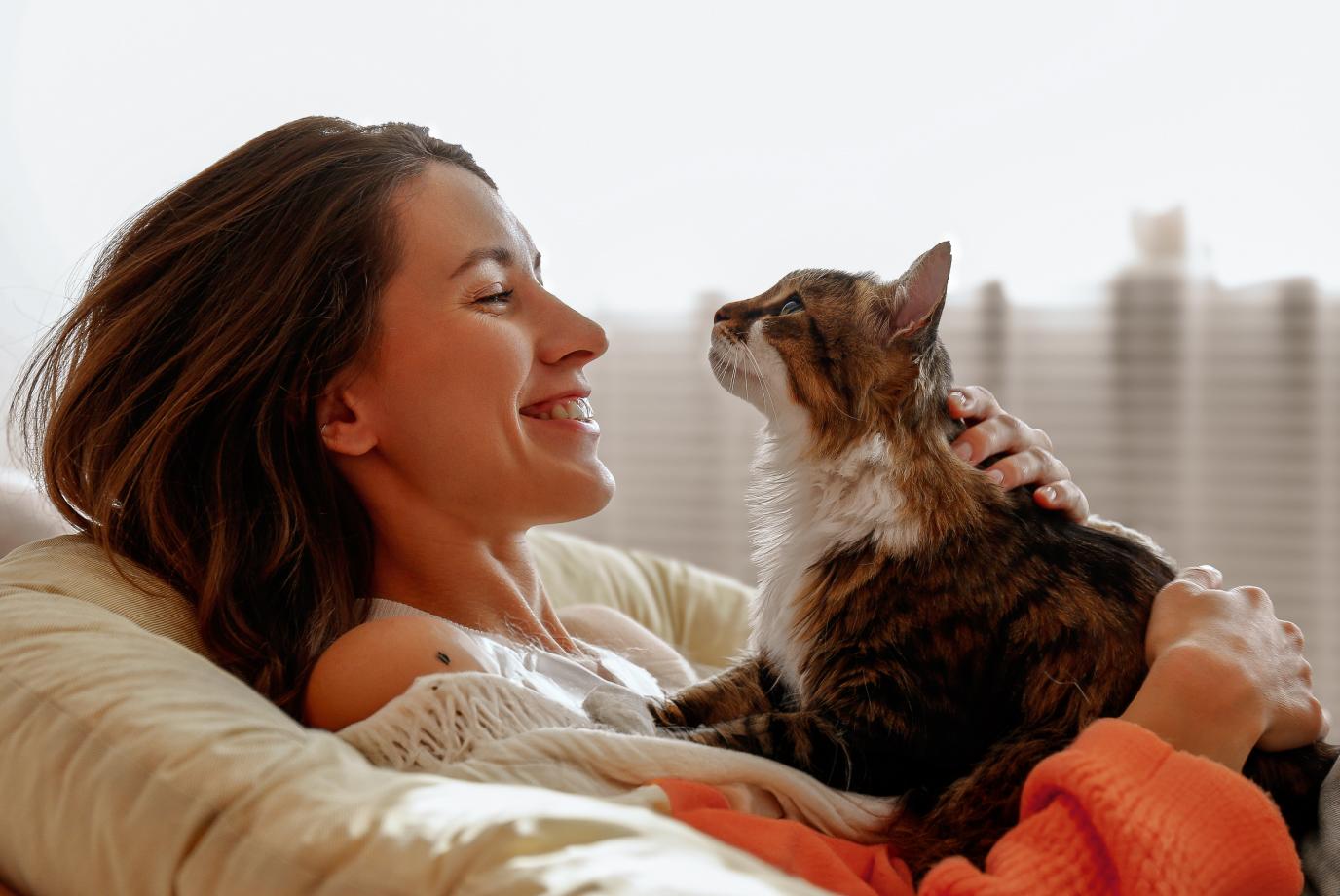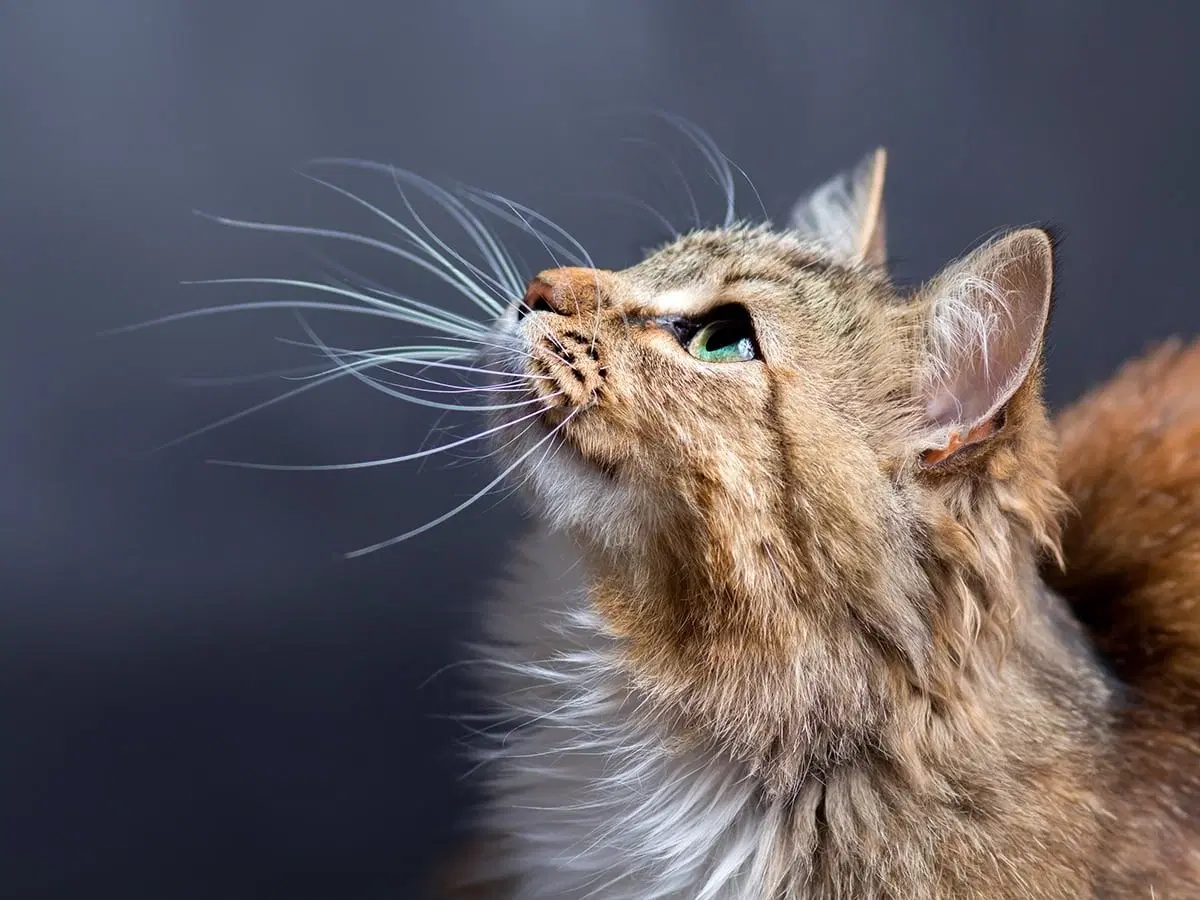Unfortunately, cats do not have nine lives. The average lifespan of a cat is around 13-14 years of age. However, some cats do reach 18 years and the extraordinary ones sometimes end up being with their humans for 30 whole years! You would be shocked to know that the oldest cat to ever live was a Texan cat who lived for 38 years and 3 days! Her name was Crème Puff, was born in August 1967 and died in August 2005 and has a Guinness Record in her name.
The average lifespan of a cat heavily depends on the lifestyle, nutrition, vaccination, overall health and even the breed as some breeds do tend to outlive others as per statistics.
We can categorize cats based on their lifestyle and arrive at an average lifespan for each group. How long do cats live? Continue reading below to learn more from Spot Pet Insurance.
How Long do Indoor Cats Live?
How long do cats live if they stay indoors? Statistically and logically, indoor cats do end up living more than outdoor ones as the latter tend to engage in riskier behaviours and exposures. If we look at the cats on the street, they face the risk of getting run over by a vehicle, getting abused by some cruel humans, and picking up bacteria and toxins by licking random surfaces and foods. They can also get into a fight with other aggressive cats and the bite wounds can transfer some severe diseases causing an early death for them since medical aid is seldom available to them. The average lifespan of an outdoor cat is hence 2-5 years; significantly lower than that of an indoor cat which is 15-20 years.
Some indoor cat breeds that tend to live longer are –
Siamese – Known for their vocal and social nature, these indoor cats can live an average of 18-20 years of age.
Balinese – A close cousin of the Siamese, Balinese cats share the same longevity property as the only difference between the breeds is the longer fur in these because of a gene mutation. They are found to be strikingly beautiful, intelligent, friendly, inquisitive, and of a playful nature
Ragdoll – One of the best family companions, Ragdolls live for an average of 15 years or more.
American Shorthair – Another energetic, compact and affectionate cat breed known for its high prey drive, the American Shorthair can live up to 20 years.
Sphynx – The unique, hairless breed, Sphynx, is a popular one among cat lovers and can live up to 20 years.
Other indoor cats that live comparatively longer are Scottish Fold, Munchkin, Russian Blue and Bombay.
Do Short-Haired Cats Live Longer?
Short-haired cats such as the American Shorthair live for 17-20 years on average. This is slightly higher than the average lifespan of all cats combined which is about 15 years of age. This is due to several factors, including their genetics, size, and weight. These cats are a relatively healthy breed and are not prone to many health issues that can shorten their lifespan. Additionally, their medium size and weight make them less prone to obesity and other weight-related health issues. Most of the indoor cats mentioned above are short-haired.
How Long do Black Cats Live?
There are no studies or observations found as of today that can prove the relation of the coat colour with the lifespan of the cat. They are generally expected to have a similar lifespan to other domestic cats. Their lifespan, like any other cat breed, will depend on factors like upbringing, diet, lifestyle, medical care and so on.
Having said that, Bombay cat and Balinese are two black cat breeds that have a longer lifespan ranging from 18-22 years which is higher than the average lifespan of all cat breeds combined.
Do Mixed-Breed Cats Live Longer than Purebreds?
The average life expectancy of purebred cats would be around 11-13 years as against 15-18 years for mixed breeds or ‘moggies’ as they are popularly known as.
Mixed-breed cats have a broader gene pool, which can reduce the risk of genetic disorders and diseases that are common in purebred cats. The diverse genetic background also makes them less prone to certain health issues.
How to Increase a Cat’s Lifespan
To increase a cat's lifespan, it is essential to provide them with a nutritious diet, keep them well groomed, give them plenty of exercise, keep their litter box clean, and take them to the vet regularly for check-ups and vaccinations. Factors that can shorten a cat's lifespan include genetics, lack of regular veterinary care, and being overweight.
Some of the measures you can take to ensure a long and healthy life for a cat are –
Provide a balanced diet and regular exercise.
Ensure a safe indoor environment.
Seek regular veterinary care.
Spay or neuter your cat.
Consider pet insurance to help cover veterinary costs.
Which Cat Breed Has the Lowest Life Expectancy?
It’s the Sphinx with an average lifespan of 6.8 years as compared to 13-14 years for all cats combined. Other breeds such as Manx, Bengal and Devon Rex also have an average lifespan lower than that of all cats.
What Can Shorten a Cat's Life?
Of the things that are in our control, poor diet, chronic stress, lack of exercise, exposure to toxins, neglect or abuse, etc. can contribute towards shortening a cat’s lifespan. Cats that are unspayed/ unneutered also tend to live lesser than their counterparts.
Does Pet Insurance Help Increase the Lifespan of a Cat?
As mentioned above, the lifespan of your cat will depend on various factors like your lifestyle, the quality of diet you provide, medical care and attention given, etc. Diseases like diabetes, feline leukaemia virus (FeLV), feline immunodeficiency virus (FIV), dental diseases, skin problems, digestive problems, parasitic infestations such as fleas and worms, kidney disease, heartworms, etc. are some of the biggest causes of a short lifespan for a cat. And the treatment of most of these can run into thousands of dollars.
Cat Insurance helps to provide pet parents with additional financial support and peace of mind when it comes to the health and wellness of their pets. With a Spot plan, pet parents can receive up to 90% cash back on eligible vet bills. This way pet parents can focus on caring for and supporting their pets. Spot's also offers preventive care add-ons, which can help cover the eligible costs of spaying and neutering, dental cleaning, vaccinations, and other routine care services. Get a quote today!

With 15 years as a dog and cat parent, my pet articles are a mix of humor and firsthand experience - proof that the best stories often come with paws and purrs.












